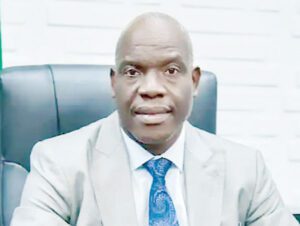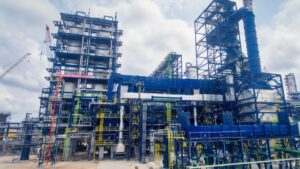


EKEDC assures customers of improved power supply
Eko Electricity Distribution Company (EKEDC) has reiterated its commitment toward improving power supply within its network operations.
The Chief Executive Officer, EKEDC, Dr Tinuade Sanda, gave the assurance during a customer consultative engagement forum in the Festac axis of Lagos State on Thursday.
Customers at the forum were drawn from Festac Town, Agboju, Satellite Town, Ijegun Imore and Snake Island.
Sanda, who was represented by the Chief Finance Officer, Mr Joseph Esenwa, explained that the ongoing low supply of electricity was due to inability to get sufficient energy from distribution companies.
She said that the quantum of energy made available to EKEDC by Gencos contributed to low supply within its network operations.
According to her, the company now gets 350 megawatts as against about 513 megawatts in the past.
“Water level is also a big challenge during dry season for hydro plants, this will be addressed once the disco gets sufficient supply.”
Sanda explained that the essence of the forum was to interact with customers within the company’s network on better ways to improve service delivery.
“Our mission in Eko DisCo is to improve the quality of lives of all customers by utilising cutting-edge technology to safely, sustainably and reliably supply electricity.
“That is what we stand for, and we will continue to promote this,” Sanda said.
She expressed confidence that Eko Disco was committed to economic and infrastructure development.
She said that the company was also committed to delivering safe, reliable and steady power supply to its customers.
She revealed that the EKEDC collection rate stood at an average of 84 per cent, indicating a positive trend in revenue generation.
She, therefore, urged customers to promptly settle their bills to ensure the company’s financial stability and encourage the company’s investment in infrastructure and service improvements.
She added that support from customers plays a significant role in influencing the performance of the DisCo and ensuring frequent power supply in the area.
Sanda also emphasised that while EKEDC had phased out most wooden poles, there were still areas difficult for officials to access due to the nature of the terrain and how some of the buildings are mapped.
She assured that underground cables within the Festac axis would be addressed once faults were detected.
On extortion and vandalism, Sanda appealed to customers to assist in the ongoing extortion crackdown, saying customers should only pay their bills.
She warned customers not to give bribes to any EKEDC worker, while urging them to report any form of extortion to the company.
She urged customers to take responsibility and report incidents of energy theft and vandalism in their communities to the Police and other relevant security operatives.
While expressing frustration over the capital expenditure that had gone into the replacement of distribution transformers and power infrastructure vandalised within a year under the network, Sanda charged customers to speak up and assist the company in reducing the cost.
She said, “When you see things happening in your environment, especially where people are stealing energy or transformers are being vandalised, endeavour to take responsibility.
“As a matter of fact, EKEDC recorded more than a hundred transformers that have been vandalised within our network, this year alone.
“The average cost of replacement for each is a million Naira or it can also be more depending on the size of the facility that was vandalised.
“We have, therefore, used the customer engagement forum to reecho the theme of our 2024 edition of Fraud Awareness Week which is, ‘If You See Something, Say Something,’ because we believe that even these criminals are domiciled within the communities.
“So, with proper surveillance and theft awareness, the leadership of the Community Development Committee, traditional leaders and other concerned customers can help us to reduce the activities of these criminals within their environment and reduce energy and equipment theft to lowest.”
Dr Akinrolabu Olukayode, Chairman of the Customer Consultative Forum of Festac/Satellite Town, commended the company on effective service delivery.
Olukayode urged the government to improve generating capacity through more investments in the power sector.
“We need to expand the generating infrastructure to meet expectations and demands.
“We can not be battling within 3, 500 megawatts to 5,000 megawatts in a population of over 200 million.
“The best way is for the government to bring in investors and experts into the energy sector and see how the threshold of power capacity can be improved.
“Government can now polarise the sector through vendors and those who can effectively distribute meters and allow investors,” he advised.
He also tasked customers to keep security of EKEDC equipment within their communities.
He also advised them to keep watch on those who bypass meters and engage in energy theft.
“It is the duty of the customers to work in partnership with the Disco to ensure that vandalisation, energy theft are reduced
“If the customers fail to do that, it will continue to affect the operations of Discos,” he added.



